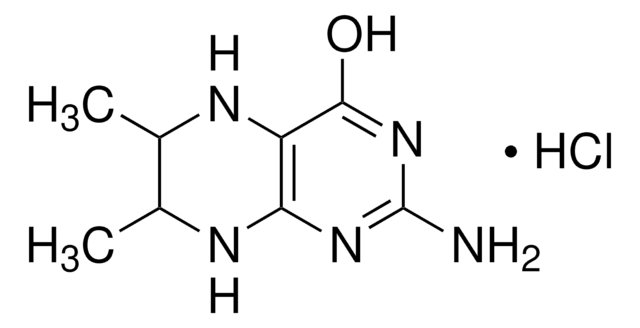D0540
DNQX
≥98% (TLC)
Synonym(s):
6,7-Dinitroquinoxaline-2,3(1H,4H)-dione
About This Item
Recommended Products
Quality Level
Assay
≥98% (TLC)
form
powder
SMILES string
[O-][N+](=O)c1cc2NC(=O)C(=O)Nc2cc1[N+]([O-])=O
InChI
1S/C8H4N4O6/c13-7-8(14)10-4-2-6(12(17)18)5(11(15)16)1-3(4)9-7/h1-2H,(H,9,13)(H,10,14)
InChI key
RWVIMCIPOAXUDG-UHFFFAOYSA-N
Gene Information
human ... GRIA1(2890) , GRIA2(2891) , GRIK1(2897) , GRIK2(2898) , GRIK3(2899) , GRIK4(2900) , GRIK5(2901)
mouse ... Gria1(14799)
rat ... Gria1(50592) , Grik1(29559) , Grik4(24406) , Grin2a(24409)
Application
Biochem/physiol Actions
Features and Benefits
Choose from one of the most recent versions:
Certificates of Analysis (COA)
Don't see the Right Version?
If you require a particular version, you can look up a specific certificate by the Lot or Batch number.
Already Own This Product?
Find documentation for the products that you have recently purchased in the Document Library.
Customers Also Viewed
Articles
DISCOVER Bioactive Small Molecules for Neuroscience
DISCOVER Bioactive Small Molecules for Neuroscience
DISCOVER Bioactive Small Molecules for Neuroscience
DISCOVER Bioactive Small Molecules for Neuroscience
Our team of scientists has experience in all areas of research including Life Science, Material Science, Chemical Synthesis, Chromatography, Analytical and many others.
Contact Technical Service















